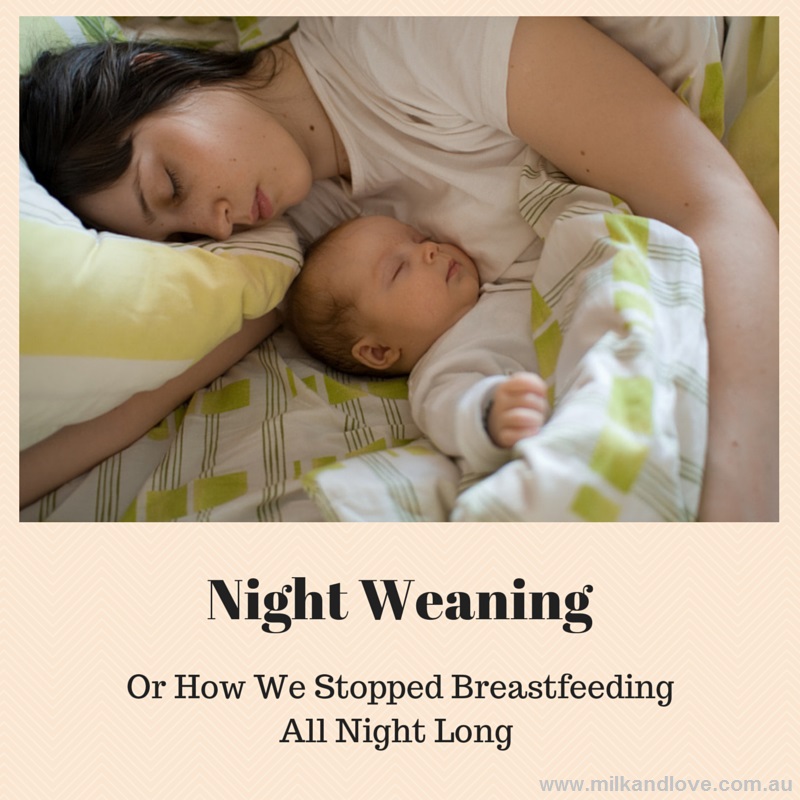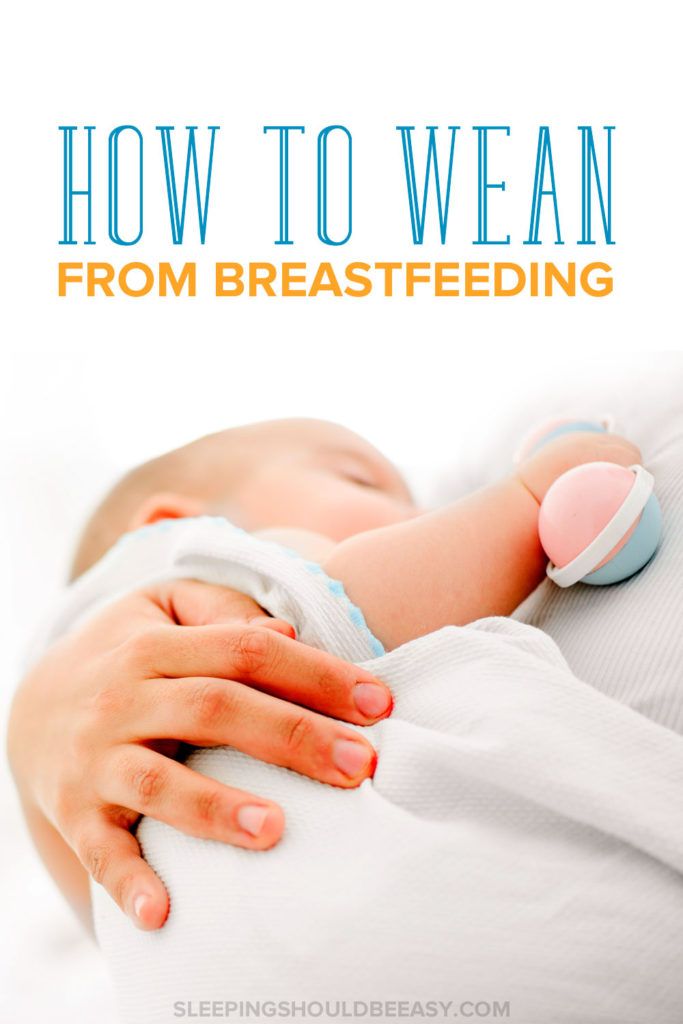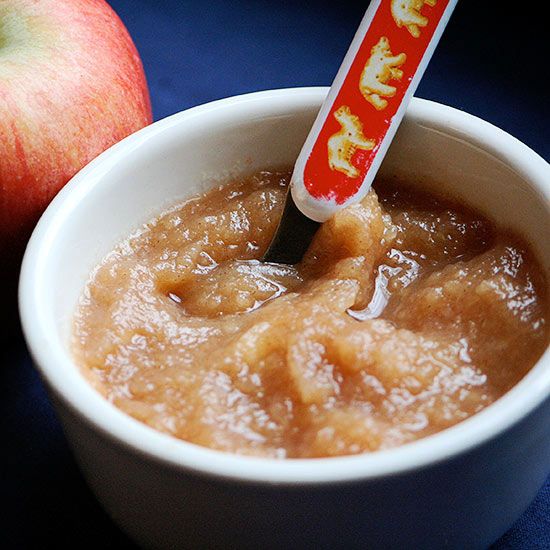Giving baby water to wean night feedings
How to Gently End Night Feedings
The most common problem behavioral sleep disorders is that most children who experience problems falling asleep have never learned to fall asleep without a breast or bottle in their mouths. Their need for this sleep crutch compounds as they get older and no longer physically need a bottle or breast before going to sleep. As they become toddlers, they are not equipped with the necessary tools and habits to put themselves to sleep. The good news is that it’s never too late to address the problem of baby feeding at night and remedy it. Night weaning is appropriate for healthy children older than six months. Learn to:
- Address your child’s hunger clock
- Gently reduce night feeds and “dream feed”
- Gradually night wean
- Introduce a cup
- Gently eliminate toddler feedings
Address Your Child’s Hunger Clock
Let’s begin by addressing your child’s hunger clock, making sure she is taking in most of her calories during the day, not waiting to feast at night. Keep a log of her daily diet and check with your doctor if you are unsure of what her intake should be. Make sure your child is not overtired when putting her to bed for either a nap or at bedtime. Proper rest will make night weaning much easier for her and you. As with breaking any sleep crutch, the key to success is consistency.
Reduce the Number of Night Feeds Before Night Weaning
If you or your pediatrician think it’s too early for total night weaning, or if you want to cut back on your nighttime feedings but aren’t ready to eliminate them all together, restrict feeding to just once per night. Feed her quickly and avoid any other interaction that will encourage her to stay up, play, or cling to you.
Be consistent! Choose an approach and stick to it. Only feed her once at night and not again until after 6:00 a.m. If she wakes up at other times wanting food, find other ways to calm her. Sit by her crib and offer physical and verbal reassurance until she is asleep. Pick her up to calm her if need be, but not until she falls asleep.
Pick her up to calm her if need be, but not until she falls asleep.
Is your baby waking up too early?
Read: Early Rising in Babies and Toddlers – 10 Tips to Resolve Early Wake-Ups
Try an Extra Night Feed or “Dream Feed”
You can try to dream feed her. Dream feeding means waking her, or half-waking her, for a final feeding before your own bedtime. Usually that falls around 11:00 p.m. Alternatively, you can wait until she wakes up, as long as it’s at least FOUR hours after her last feeding, which usually means around 11 p.m. or 12:00 midnight. Then don’t feed her again until she wakes up in the morning, 6:00 a.m. at the earliest. This is a step along the way to night weaning for babies who still can’t go the full night without some calories.
How to Night Wean Gradually
When night weaning children from six to twelve months, I usually suggest a gentle and gradual elimination of nighttime feedings. Overnight, try cutting down on nursing time. If she usually feeds for twenty minutes during the night, give her fifteen. Keep cutting back every few days until she’s ready to give it up. Make sure you unlatch her when she finishes eating heartily — don’t let her gently suckle and doze. Same with the bottle — let her eat, but don’t let her play with it.
Overnight, try cutting down on nursing time. If she usually feeds for twenty minutes during the night, give her fifteen. Keep cutting back every few days until she’s ready to give it up. Make sure you unlatch her when she finishes eating heartily — don’t let her gently suckle and doze. Same with the bottle — let her eat, but don’t let her play with it.
With a nighttime bottle, you can also try switching to a smaller bottle, put less formula in the bottle, or gradually dilute the formula so that when it gets very watery, she might decide it’s not worth getting up for. Then she’s night weaning herself!
When the nursing is cut back to five minutes, or the bottle to three ounces, it’s time to stop. Anything smaller is just a tease. Get her back to bed while she’s drowsy, but awake.
Did you know you should put your baby to bed alert, or “drowsy but awake”?
Read: Drowsy But Awake — The Cornerstone of Successful Sleep Training

Introduce a Cup
Try to introduce a cup before her first birthday to help with night weaning. As babies get older, they become emotionally attached to the bottle or breast. It basically becomes a “lovey” and can contribute to the ingrained habit of waking up at night in search of it. Nurse or bottle feed at set times, and use the cup at set times. Most moms and babies like nursing or bottle feeding during the morning and night, and use the cup during the day, especially with solids at mealtime. Don’t let her fall asleep on the breast or bottle, though! And encourage the attachment to a lovey.
Does your child have a lovey?
Read: The Lovey — Your Child’s First Best Friend
Eliminating Toddler Night Feedings
Toddlers need to begin eliminating the nighttime noshing by changing from nursing or bottle feeding before bed to drinking from a cup. The goal is to have your child drink a cup of water instead of milk before bed — or nothing at all. Milk encourages the child to want it again every time they stir or wake during the night. A cup of water — a sippy cup or sports bottle — by the bedside will encourage your child to wean herself from milk. Not to mention, your child’s dentist will approve! But be firm in allowing only one cup that has to last all night. You will not keep coming back to give her more.
Milk encourages the child to want it again every time they stir or wake during the night. A cup of water — a sippy cup or sports bottle — by the bedside will encourage your child to wean herself from milk. Not to mention, your child’s dentist will approve! But be firm in allowing only one cup that has to last all night. You will not keep coming back to give her more.
With infants, a gradual night weaning is best, but after her first birthday, it’s usually best just to stop cold. When she wakes up at night wanting to nurse or take a bottle, sit by her side and find other ways to calm her. Pat her mattress a bit and whisper “sh-sh-sh,” and tell her it’s nighttime. Don’t cave in and feed her or the inconsistency, aka “intermittent reinforcement”, is going to make the change more prolonged and difficult for her.
If you can’t bear stopping cold, then try a dream feed for a few nights, but no more than a week.
 Try introducing a soft toy instead.
Try introducing a soft toy instead.Consistency is Key in Night Weaning
As with breaking any sleep crutch, consistency is the key to success with night weaning. Once you begin a new habit, do not go back! It will confuse the child and take twice as long to break this sometimes emotional need to nosh at nighttime. Focus on bedtime – drowsy but awake. If your child is put into her crib or bed asleep, then these nighttime techniques will NOT work. Gently encourage and offer reassurance. Present lovies or a new stuffed animal friend to help with the change. Often, the stuffed animals can “hold” the new big girl sippy cup on a nightstand during the night in case your child needs it. Your loving words, gentle touch, and soft voice will go a long way in making this a quick change for everyone!
Good luck!
Sleeping Through the Night Part 3
You are here: Home / 1 YO / What You Need to Know About Sleeping Through the Night Part 3
1,157 Comments
By 6-8 months your baby is fully ready and capable to be completely done with eating at night.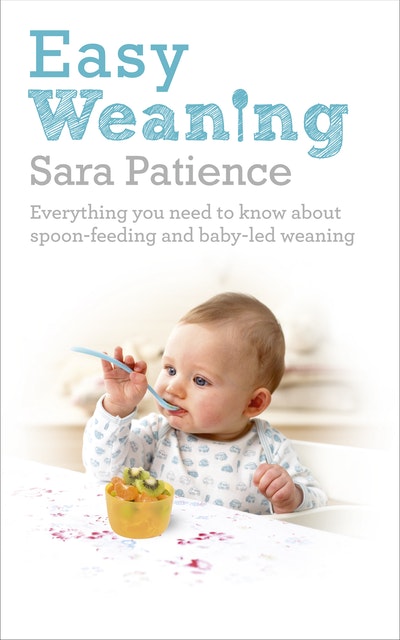 Dr. Sears suggests that some parents really enjoy feeding their babies at night and will happily continue offering night feeding sessions until the child stops waking up on their own. If you are one of these mythical “I love waking up in the middle of the night” parents, best of luck to you. Personally I don’t know any people like this. And I think they’re really rare. Like unicorn rare.
Dr. Sears suggests that some parents really enjoy feeding their babies at night and will happily continue offering night feeding sessions until the child stops waking up on their own. If you are one of these mythical “I love waking up in the middle of the night” parents, best of luck to you. Personally I don’t know any people like this. And I think they’re really rare. Like unicorn rare.
But my point is that by this time your baby no longer needs to consume lots of food at night and is fully capable of getting all their calories in during daylight hours. And while a few babies will organically drop all their night feedings without any assistance from you, the vast majority of babies will continue to wake up routinely for a nursing session or bottle for years. So you can live with night feedings for the next 3 years, or you can take some simple and effective steps to gently wean your baby off their night feeding habit.
If you think you’re ready to stop night feedings you must have already read and done your homework from Sleeping Through the Night Part 1 and Sleeping Through the Night Part 2.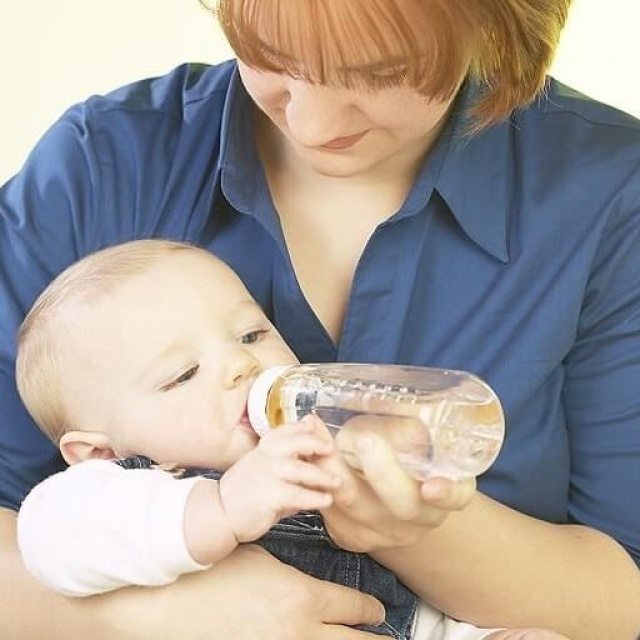 Otherwise my no-fail night weaning strategy will fail miserably!
Otherwise my no-fail night weaning strategy will fail miserably!
Start by choosing the feeding that is the least fun for you (typically this is the “dear God why are you awake it’s freeking 2:00 AM” feeding). Use the relevant process outlined below to completely wean off one feeding. Repeat.
- Gradually reduce the amount of time baby gets on the breast by 1 minute every 1-2 days. For example if your baby nurses 10 minutes a side (for a total of 20 minutes), start popping him off at 9 minutes, 8 minutes, etc.
- By the time your baby is only nursing for 2-3 minutes he may stop waking up all on his own. WHOOPIEE!
- If your baby STILL wants to nurse then you have a few options on how to handle it:
- A) Send daddy in for 1 minute of low-key soothing. Daddies are miraculously good at this. Also? They don’t smell like food. Babies are much more adaptive at getting the “no more food for you buddy” message from Dads.
- B) Let him complain.
 This should NOT be a nightmare CIO scene. Most babies who have been gently decreasing their milk consumption are now USED to not eating at this time. Left to their own devices they typically complain for 5-10 minutes and then fall back to sleep.
This should NOT be a nightmare CIO scene. Most babies who have been gently decreasing their milk consumption are now USED to not eating at this time. Left to their own devices they typically complain for 5-10 minutes and then fall back to sleep. - When you are done feeding your baby at X time of night you are DONE. Don’t let teething/colds/travel get you back on the night feeding menu. If this happens you need to start over again. Do not pass GO. Do not collect $200.
Night Weaning for Bottle-fed Babies
- Offer 2 oz less of formula. So instead of an 8 oz bottle, offer a 6 oz bottle. Then a 4 oz bottle. Etc.
- -OR- Dilute the formula by reducing the amount of formula in the bottle by 1 scoop but leave the amount of water the same. So instead of 8 oz of water with 4 scoops of formula you would offer 8 oz of water with 3 scoops of formula.
- Continue decreasing the dilution of the formula until the bottle is 100% water.
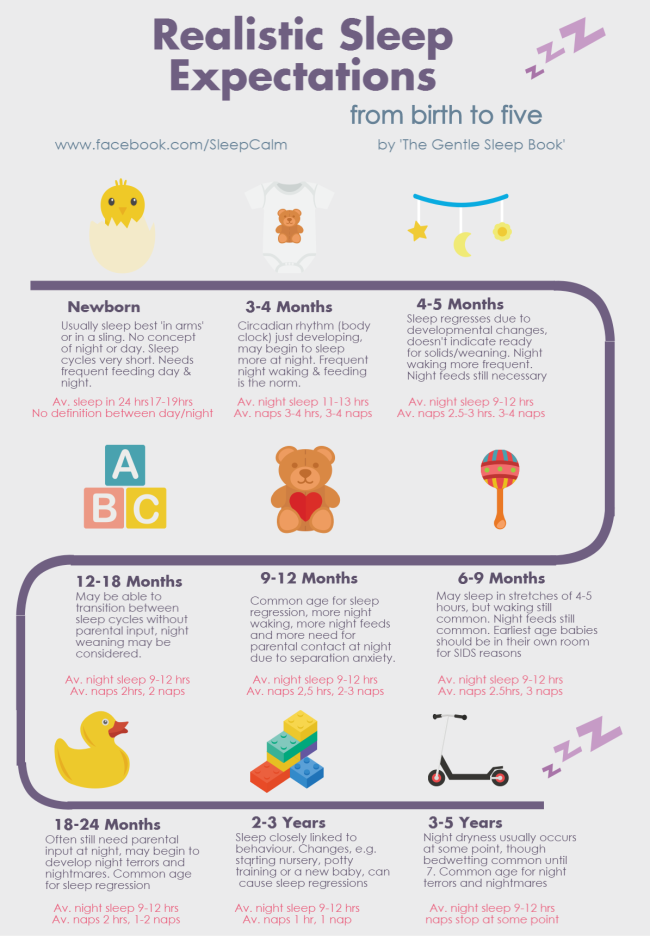 (Or continue offering less formula in the bottle – 6 oz, 4 oz, 2 oz). After 1-2 days of “only water” bottles, no more bottles.
(Or continue offering less formula in the bottle – 6 oz, 4 oz, 2 oz). After 1-2 days of “only water” bottles, no more bottles. - At this point your baby will probably stop waking up for this feeding all on their own. If not read the tips above (for breastfed babies) on how to proceed.
- When you are done with a given feeding you are DONE. No more bottles at that time of night. The kitchen is closed.
I’ve done this with many families over the years and it works shockingly well. Don’t believe me? Try it. Then come back next week and share your success story in the comment section!
There are a few small caveats to night weaning that I want to share….
The Dreaded Early Morning Feeding
It’s really common for babies to wake up to nurse in the early morning, say 5:00 AM, and then fall back to sleep for another 1-2 hours. When starting the night weaning process I suggest that this is the LAST feeding session you tackle.
Why?
Because babies often respond to giving up the 5:00 AM feeding by deciding instead to start the day. I think the problem is that a) it’s close enough to their normal wakeup time b) they’re used to waking up at that time already and c) they’ve gotten enough sleep that basic exhaustion won’t just whisk them back to dreamland.
I have no magic solution to this dilemma. Try weaning off the early morning feeding and see what happens. Your baby may continue to sleep happily until their normal wakeup time. Your baby may figure out how to fall back asleep at 5:00 am with a little gentle soothing encouragement from you or your partner. Or your baby may flatly refuse to go back to sleep without being fed.
If the latter then you can decide if you want to simply concede defeat and continue with the 5:00 AM feeding rather than wake up in the early dark of the morning. Personally I think an extra hour or two of sleep is worth dealing with the 5:00 AM feeding. If you’re nursing I would strongly encourage you to give your baby a bottle instead at this hour so you and your partner can take turns.
If you’re nursing I would strongly encourage you to give your baby a bottle instead at this hour so you and your partner can take turns.
Night Weaning Isn’t Working
Night weaning is not always a simple, linear process. If it’s going smoothly – YAY! If not, there could be loads of reasons why things aren’t going well. This is pithy post will work for many but not all. If you’re struggling with issues not covered here and need help troubleshooting, or developing a plan that works for your specific situation, you’ll find those answers spelled out in the book. There is a whole chapter dedicated to night weaning as well as a substantial troubleshooting guide, so check it out.
What worked/didn’t work for you? Leave a comment below!
{photo credit: DonkeyHotey and Stephen Heron}
Filed Under: 1 YO, 2 YO, 6-9 Months, 9-12 Months, featured, parenting Tagged With: bottle-fed night weaning, breastfed nightweaning, Dr. Sears, night weaning, no-fail, sleep through the night, strategies
Reader Interactions
Night feeding weaning
Weaning from night feeds and uninterrupted sleep throughout the night is the dream of many new parents. However, kids have completely different plans in this regard. Many of them continue to wake up to eat or drink, even at 3 years old. We understand why this happens and whether it is possible to wean a child to eat at night.
However, kids have completely different plans in this regard. Many of them continue to wake up to eat or drink, even at 3 years old. We understand why this happens and whether it is possible to wean a child to eat at night.
Why night feedings are needed
Night feedings are not a whim, but a necessity for the normal development of the baby. First of all, they are needed by the child, and then by the mother. The main reasons why a child needs to wake up at night include the following:
- physiological immaturity. Compared to adults, children's metabolism is very fast. This is due to the active growth and development of the baby. In addition, both formula and breast milk are absorbed very quickly - on average, in 2-4 hours.
- Features of lactation. The amount of milk in the mother is regulated precisely by feeding at night, since the hormone prolactin is actively produced at this time of day. If a woman wants to breastfeed a baby, at least one nightly application is necessary.

- evolutionary mechanisms. According to one hypothesis, night waking is an evolutionary mechanism that protects the baby from sudden infant death syndrome.
- Compensatory. If the mother removes daytime feeds, the baby may begin to wake up more often at night to compensate for the lack of daytime feedings. This is more relevant for children on breastfeeding one year old and older.
If night waking does not cause inconvenience to mother and baby, then there is no need to specially clean them. You can wait until the baby's nervous system matures and he refuses such feedings on his own.
� When the baby is ready to leave night feeds
The ability to sleep through the night without waking up for a night snack develops as the baby's nervous and digestive systems mature. Attempts to reduce nighttime feedings before this point can end in failure, exhaust the mother and cause sleepless nights for the whole family.
The following terms are considered physiological:
| Type of feeding | When do night feeds end? |
| breast | A breastfed infant stops eating at night around 18–24 months of age. |
| mixed | Depends on what kind of food (formula or breast milk) prevails in the baby's diet. Age can vary from 9 to 24 months. |
| artificial | Formula is considered a heavier product, so formula-fed babies may stop eating at night as early as 9-12 months. |
Some babies, whether breastfed or formula-fed or mixed-fed, may start sleeping without waking up for nighttime feeds as early as 6 months. If the mother has enough milk, and the baby is gaining weight normally, you do not need to specifically wake the baby to feed him.
Important! Night feedings are the key to successful lactation. If the baby of the first months of life does not wake up at night, you need to offer the breast to a sleepy baby. This stimulates the production of milk and will help to avoid problems with its quantity.
How to stop feeding your baby at night on EW
It is much easier to remove night feedings from a baby on artificial feeding than on breastfeeding.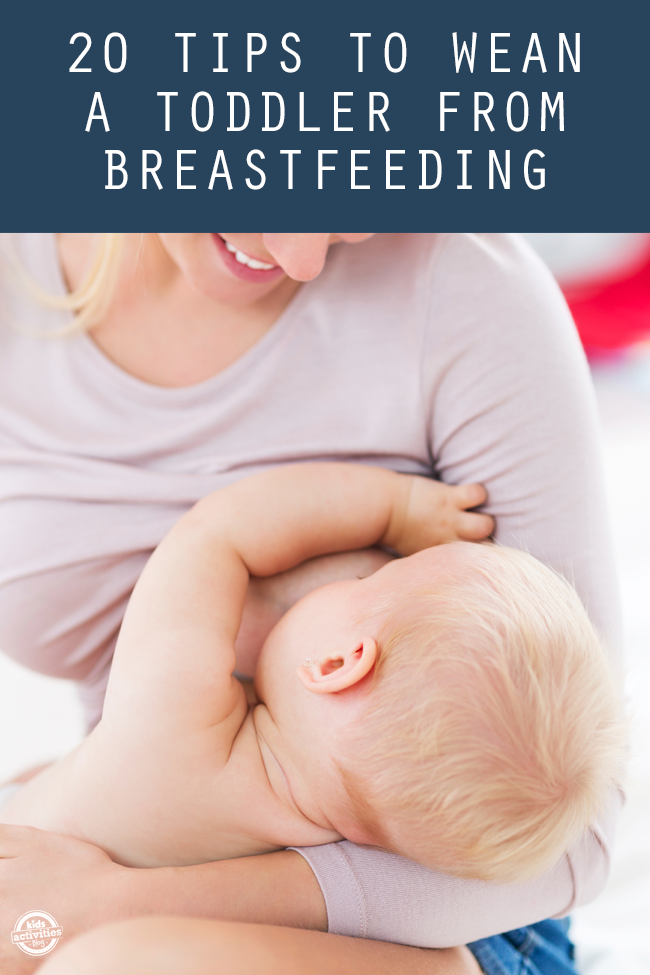 This is due to the fact that a baby on IV immediately gets used to the schedule, and with a greater nutritional value of the mixture, and less difficulty with its replacement. On average, babies who eat formula wake up only 2-3 times per night, so it will not be difficult to refuse such a number of feedings.
This is due to the fact that a baby on IV immediately gets used to the schedule, and with a greater nutritional value of the mixture, and less difficulty with its replacement. On average, babies who eat formula wake up only 2-3 times per night, so it will not be difficult to refuse such a number of feedings.
However, weaning from nighttime eating should begin no earlier than 6 months. By this age, the brain of children in general is ready to sleep without awakening from 6 to 8 hours. What can be done to reduce the number of feedings?
- If the mother practices co-sleeping, you should not combine moving the child to the crib and accustoming to uninterrupted sleep at night. It is better to reduce the number of wakings first, and then move the baby to your bed.
- If the baby has entered a clear mode, you can gradually increase the intervals between night feedings. You can move them no more than half an hour at a time.
- When the baby asks for food at night, offer him water first and only then formula.
 Perhaps he wakes up from thirst, not from hunger. This approach will help increase the intervals between feedings.
Perhaps he wakes up from thirst, not from hunger. This approach will help increase the intervals between feedings. - After a year, a hearty dinner helps to improve sleep. Feed your baby porridge or porridge with meat 2-3 hours before bedtime. Such food is digested for a long time and will help the baby sleep better.
It is important to remember that the reduction in feeding should not be accompanied by tears and tantrums of the baby. Restless night sleep and discomfort will cause the baby to wake up more often.
Weaning from night feeds should not be a problem for the baby and other family members. Our doctors will remotely advise on the features of children's sleep and help you choose the right moment for weaning from night feedings.
How to remove night feedings with breastfeeding
The regimen of children who are exclusively breastfed is different from the regimen of children who are fully or partially artificially fed. For children on IV, night feedings, rather, are a consequence of the characteristics of the child's psyche and metabolism. For children on breastfeeding, they are rather a necessity.
For children on IV, night feedings, rather, are a consequence of the characteristics of the child's psyche and metabolism. For children on breastfeeding, they are rather a necessity.
It is at night that the hormone prolactin is produced, which regulates the production of milk in the mother. If you do not feed your baby at night or leave such feedings too early, this will directly affect the amount of milk and, as a result, the development and growth of the baby.
It is believed that during weaning, night feedings are the last to stop. However, you can reduce the number of nightly attachments before the mother decides to complete breastfeeding. What can be done for this?
- If the mother practices co-sleeping, moving the baby to her crib will help reduce the number of nightly attachments. At first, you can put a baby bed with the side removed to the parent one and shift the baby after he falls asleep. Then the side rises, and the bed moves away.

- After a year, giving up or reducing the number of night feedings helps a hearty dinner and a bowl of water instead of breastfeeding at night. You can also give kefir or a mixture at night.
- The number of nightly attachments is also affected by daytime feeding. If the mother cancels too many daytime attachments and severely restricts the baby, he can compensate for the lack at night. Therefore, if the mother does not plan to completely cancel breastfeeding, it is better to allow the toddler to apply during the day.
If the mother does not plan to stop breastfeeding in the near future, then it is better to postpone weaning from night feedings to a more suitable time for this and wait for the moment when the baby himself refuses nightly feedings. After a year, you can teach the child self-attachment. In this case, neither the baby nor the mother practically wakes up at night.
Read also What kind of breastfeeding is considered prolonged
FAQ
How many times does the child eat at night?
+
The number of night feedings depends on the age and type of feeding. Formula-fed babies wake up 2-3 times a night on average. Breastfed babies may wake up more often.
Formula-fed babies wake up 2-3 times a night on average. Breastfed babies may wake up more often.
When do children wake up at night?
+
The baby's brain is not adapted to a long night's sleep. This is believed to be an evolutionary mechanism that protects infants from sudden infant death syndrome. The child begins to sleep more than 6 hours in a row after a year, and all night - closer to three.
What can I do to stop my child from eating at night?
+
You can reduce the number of nightly feedings by moving the baby to a separate bed, starting to feed a denser dinner and gradually increasing the intervals between nightly attachments.
When should a baby be weaned?
+
The World Health Organization recommends breastfeeding or formula feeding until two years of age if it is comfortable for both mother and baby. If a woman decides to wean the baby from the breast earlier, you need to replace the breast mixture.
If a woman decides to wean the baby from the breast earlier, you need to replace the breast mixture.
Is it necessary to wean the baby from the breast if he does not sleep well?
+
Weaning does not guarantee that the baby will sleep through the night. For this to happen, his nervous system must mature. Weaning, especially through tears, can cause restless sleep and frequent waking.
Expert opinion
Night feedings are necessary for the normal growth and development of the child. On average, children self-refuse by the age of 9-24 months. However, this does not mean that the child stops waking up at night. The brain fully matures for this only at the age of 3 years. To wean a child from waking up at night, you need to feed him more densely before bedtime, move him to his crib and offer water at night instead of breast or formula.
We publish only verified information
Article author
Pruzhinin Mark Yulievich pediatrician
Experience 30 years
Consultations 1572
Articles 104
An experienced pediatrician with extensive experience and clinical experience in various medical organizations in the field of general pediatrics, resuscitation and anesthesiology and neuroinfection. Works with leading experts, attends international and Russian conferences.
Works with leading experts, attends international and Russian conferences. Night feeding weaning
Weaning from night feeds and uninterrupted sleep throughout the night is the dream of many new parents. However, kids have completely different plans in this regard. Many of them continue to wake up to eat or drink, even at 3 years old. We understand why this happens and whether it is possible to wean a child to eat at night.
Why night feedings are needed
Night feedings are not a whim, but a necessity for the normal development of the baby. First of all, they are needed by the child, and then by the mother. The main reasons why a child needs to wake up at night include the following:
- physiological immaturity. Compared to adults, children's metabolism is very fast. This is due to the active growth and development of the baby. In addition, both formula and breast milk are absorbed very quickly - on average, in 2-4 hours.
- Features of lactation.
 The amount of milk in the mother is regulated precisely by feeding at night, since the hormone prolactin is actively produced at this time of day. If a woman wants to breastfeed a baby, at least one nightly application is necessary.
The amount of milk in the mother is regulated precisely by feeding at night, since the hormone prolactin is actively produced at this time of day. If a woman wants to breastfeed a baby, at least one nightly application is necessary. - evolutionary mechanisms. According to one hypothesis, night waking is an evolutionary mechanism that protects the baby from sudden infant death syndrome.
- Compensatory. If the mother removes daytime feeds, the baby may begin to wake up more often at night to compensate for the lack of daytime feedings. This is more relevant for children on breastfeeding one year old and older.
If night waking does not cause inconvenience to mother and baby, then there is no need to specially clean them. You can wait until the baby's nervous system matures and he refuses such feedings on his own.
� When the baby is ready to leave night feeds
The ability to sleep through the night without waking up for a night snack develops as the baby's nervous and digestive systems mature. Attempts to reduce nighttime feedings before this point can end in failure, exhaust the mother and cause sleepless nights for the whole family.
Attempts to reduce nighttime feedings before this point can end in failure, exhaust the mother and cause sleepless nights for the whole family.
The following terms are considered physiological:
| Type of feeding | When do night feeds end? |
| breast | A breastfed infant stops eating at night around 18–24 months of age. |
| mixed | Depends on what kind of food (formula or breast milk) prevails in the baby's diet. Age can vary from 9 to 24 months. |
| artificial | Formula is considered a heavier product, so formula-fed babies may stop eating at night as early as 9-12 months. |
Some babies, whether breastfed or formula-fed or mixed-fed, may start sleeping without waking up for nighttime feeds as early as 6 months. If the mother has enough milk, and the baby is gaining weight normally, you do not need to specifically wake the baby to feed him.
If the mother has enough milk, and the baby is gaining weight normally, you do not need to specifically wake the baby to feed him.
Important! Night feedings are the key to successful lactation. If the baby of the first months of life does not wake up at night, you need to offer the breast to a sleepy baby. This stimulates the production of milk and will help to avoid problems with its quantity.
How to stop feeding your baby at night on EW
It is much easier to remove night feedings from a baby on artificial feeding than on breastfeeding. This is due to the fact that a baby on IV immediately gets used to the schedule, and with a greater nutritional value of the mixture, and less difficulty with its replacement. On average, babies who eat formula wake up only 2-3 times per night, so it will not be difficult to refuse such a number of feedings.
However, weaning from nighttime eating should begin no earlier than 6 months. By this age, the brain of children in general is ready to sleep without awakening from 6 to 8 hours. What can be done to reduce the number of feedings?
What can be done to reduce the number of feedings?
- If the mother practices co-sleeping, you should not combine moving the child to the crib and accustoming to uninterrupted sleep at night. It is better to reduce the number of wakings first, and then move the baby to your bed.
- If the baby has entered a clear mode, you can gradually increase the intervals between night feedings. You can move them no more than half an hour at a time.
- When the baby asks for food at night, offer him water first and only then formula. Perhaps he wakes up from thirst, not from hunger. This approach will help increase the intervals between feedings.
- After a year, a hearty dinner helps to improve sleep. Feed your baby porridge or porridge with meat 2-3 hours before bedtime. Such food is digested for a long time and will help the baby sleep better.
It is important to remember that the reduction in feeding should not be accompanied by tears and tantrums of the baby.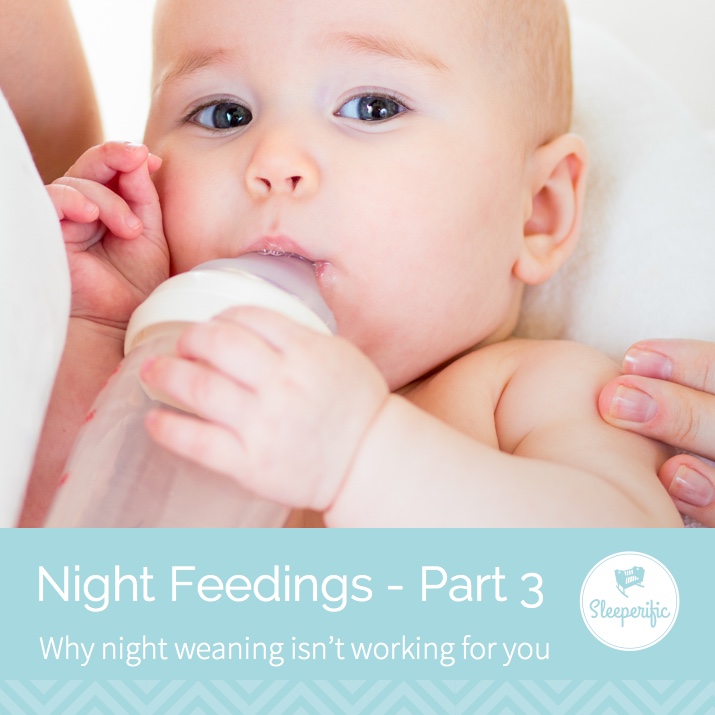 Restless night sleep and discomfort will cause the baby to wake up more often.
Restless night sleep and discomfort will cause the baby to wake up more often.
Weaning from night feeds should not be a problem for the baby and other family members. Our doctors will remotely advise on the features of children's sleep and help you choose the right moment for weaning from night feedings.
How to remove night feedings with breastfeeding
The regimen of children who are exclusively breastfed is different from the regimen of children who are fully or partially artificially fed. For children on IV, night feedings, rather, are a consequence of the characteristics of the child's psyche and metabolism. For children on breastfeeding, they are rather a necessity.
It is at night that the hormone prolactin is produced, which regulates the production of milk in the mother. If you do not feed your baby at night or leave such feedings too early, this will directly affect the amount of milk and, as a result, the development and growth of the baby.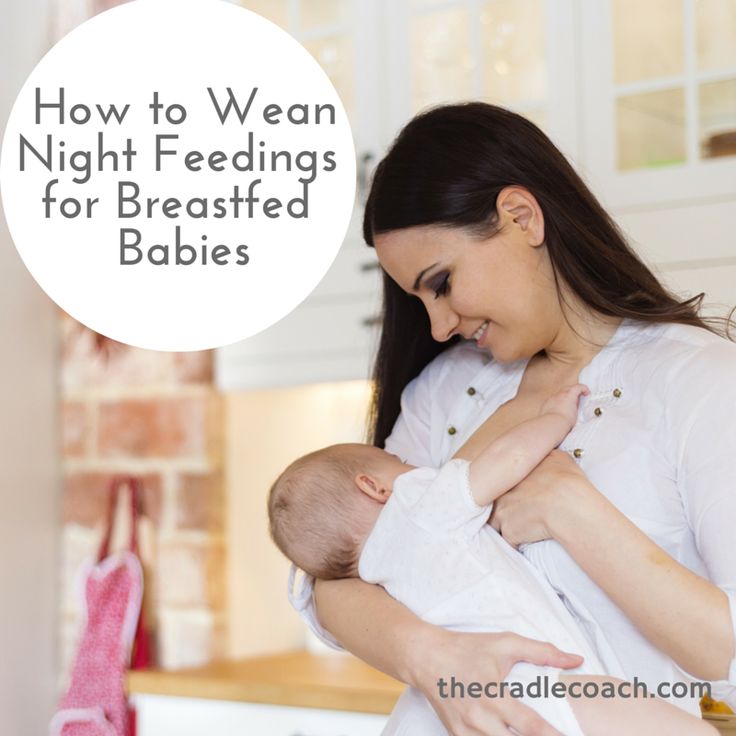
It is believed that during weaning, night feedings are the last to stop. However, you can reduce the number of nightly attachments before the mother decides to complete breastfeeding. What can be done for this?
- If the mother practices co-sleeping, moving the baby to her crib will help reduce the number of nightly attachments. At first, you can put a baby bed with the side removed to the parent one and shift the baby after he falls asleep. Then the side rises, and the bed moves away.
- After a year, giving up or reducing the number of night feedings helps a hearty dinner and a bowl of water instead of breastfeeding at night. You can also give kefir or a mixture at night.
- The number of nightly attachments is also affected by daytime feeding. If the mother cancels too many daytime attachments and severely restricts the baby, he can compensate for the lack at night. Therefore, if the mother does not plan to completely cancel breastfeeding, it is better to allow the toddler to apply during the day.

If the mother does not plan to stop breastfeeding in the near future, then it is better to postpone weaning from night feedings to a more suitable time for this and wait for the moment when the baby himself refuses nightly feedings. After a year, you can teach the child self-attachment. In this case, neither the baby nor the mother practically wakes up at night.
Read also What kind of breastfeeding is considered prolonged
FAQ
How many times does the child eat at night?
+
The number of night feedings depends on the age and type of feeding. Formula-fed babies wake up 2-3 times a night on average. Breastfed babies may wake up more often.
When do children wake up at night?
+
The baby's brain is not adapted to a long night's sleep. This is believed to be an evolutionary mechanism that protects infants from sudden infant death syndrome.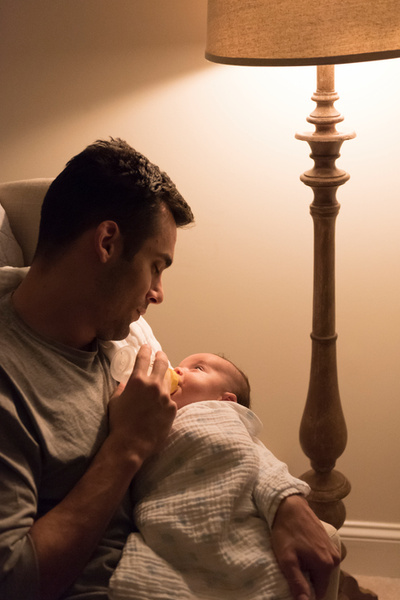 The child begins to sleep more than 6 hours in a row after a year, and all night - closer to three.
The child begins to sleep more than 6 hours in a row after a year, and all night - closer to three.
What can I do to stop my child from eating at night?
+
You can reduce the number of nightly feedings by moving the baby to a separate bed, starting to feed a denser dinner and gradually increasing the intervals between nightly attachments.
When should a baby be weaned?
+
The World Health Organization recommends breastfeeding or formula feeding until two years of age if it is comfortable for both mother and baby. If a woman decides to wean the baby from the breast earlier, you need to replace the breast mixture.
Is it necessary to wean the baby from the breast if he does not sleep well?
+
Weaning does not guarantee that the baby will sleep through the night. For this to happen, his nervous system must mature.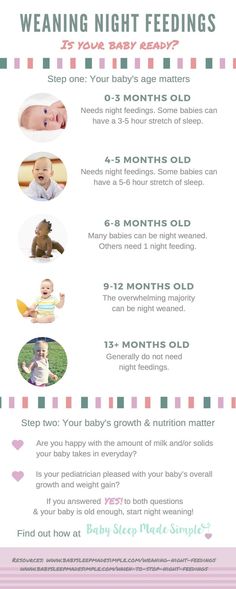 Weaning, especially through tears, can cause restless sleep and frequent waking.
Weaning, especially through tears, can cause restless sleep and frequent waking.
Expert opinion
Night feedings are necessary for the normal growth and development of the child. On average, children self-refuse by the age of 9-24 months. However, this does not mean that the child stops waking up at night. The brain fully matures for this only at the age of 3 years. To wean a child from waking up at night, you need to feed him more densely before bedtime, move him to his crib and offer water at night instead of breast or formula.
We publish only verified information
Article author
Pruzhinin Mark Yulievich pediatrician
Experience 30 years
Consultations 1572
Articles 104
An experienced pediatrician with extensive experience and clinical experience in various medical organizations in the field of general pediatrics, resuscitation and anesthesiology and neuroinfection.